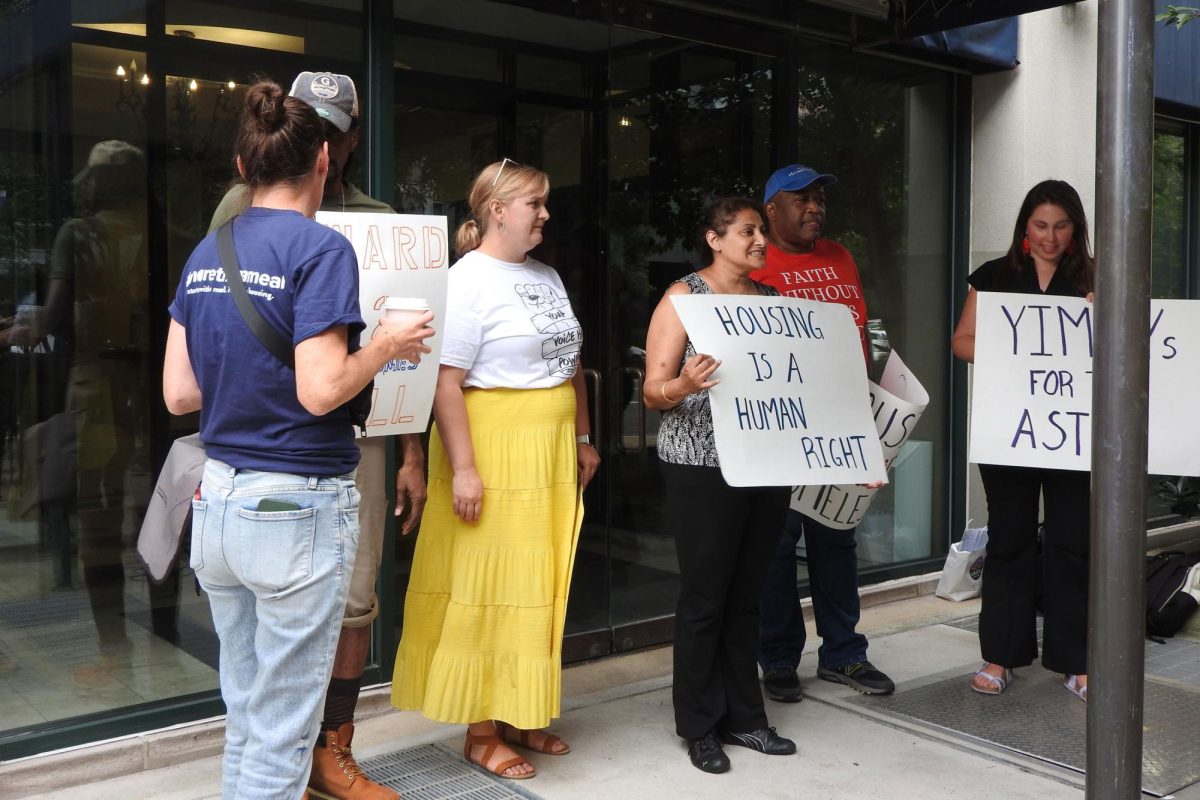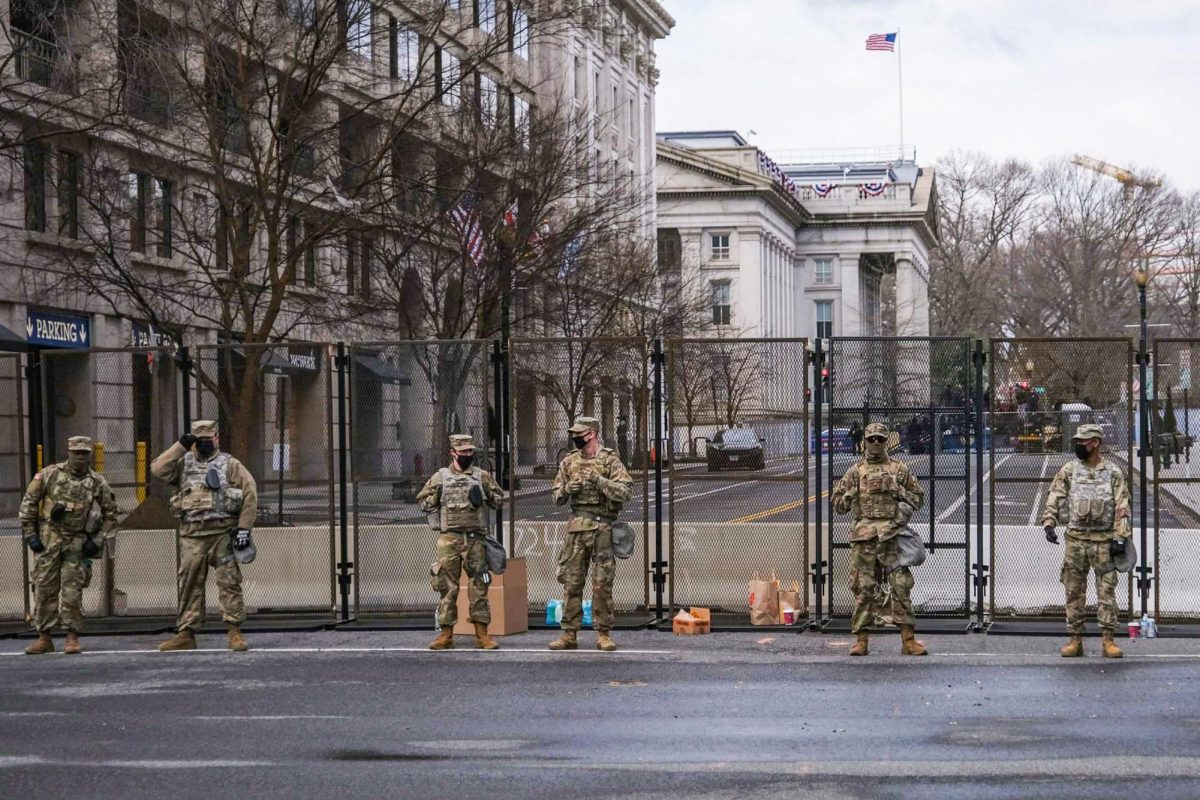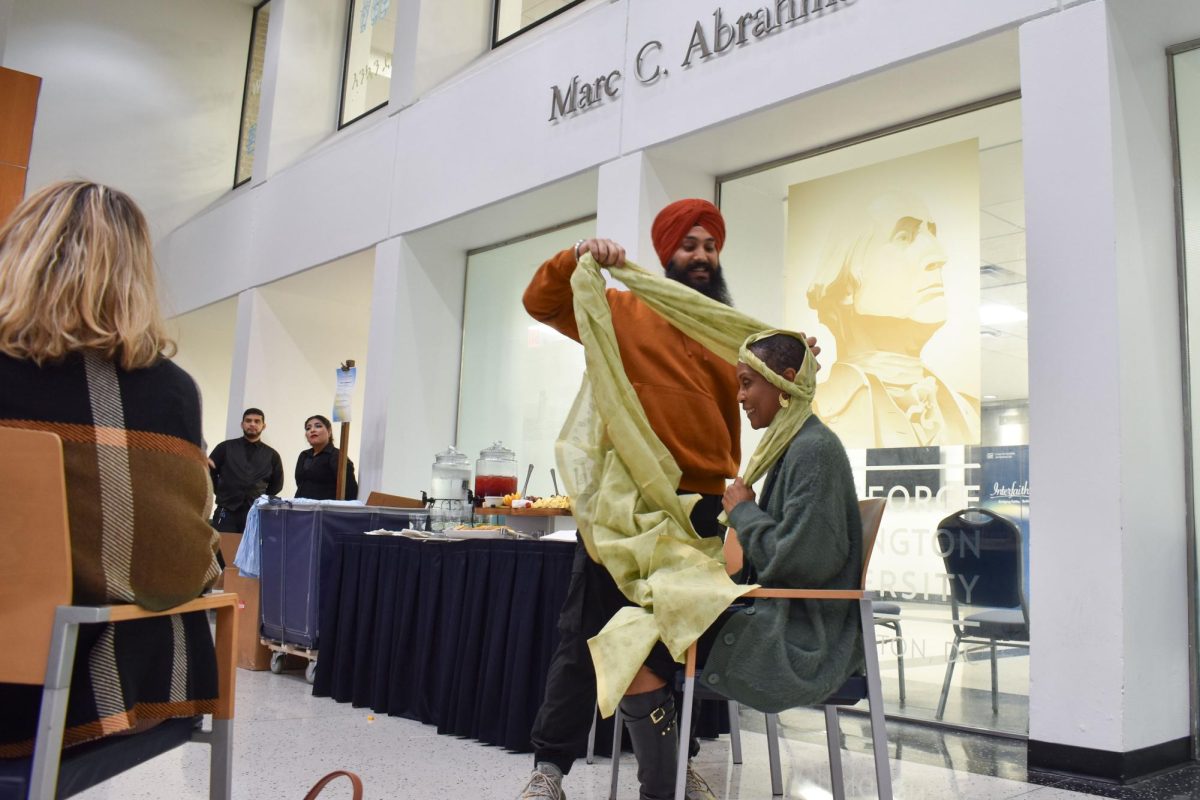Updated: Sept. 11, 2023, at 12:00 p.m.
Foggy Bottom and West End community members rallied in support of D.C.’s proposal to convert a former GW residence hall into a homeless shelter at a demonstration Wednesday.
More than 150 people gathered outside The Aston, a former GW residence hall on New Hampshire Avenue, to show their support for the District’s plan to convert it into the first shelter in D.C. for mixed-gendered adult families and medically vulnerable people where residents have their own rooms. At the demonstration, rally organizer Jesse Rabinowitz announced the District finalized the sale of The Aston, the latest step in an escalating duel between the city and a group of West End community members suing the city over the building’s planned conversion.
“Unlike D.C.’s current shelter system for single adults, non-congregate shelters allow residents the dignity of their own space to rest and work towards housing,” a flyer distributed at the rally stated.
The D.C. Council approved the Department of General Services’ $27.5 million contract to purchase The Aston from GW on July 6 and finalized the sale Wednesday. But on July 18, The West End D.C. Community Association — an unincorporated group of local property owners represented by law firm ArentFox Schiff LLP — sued the District, arguing community members lacked sufficient time to provide feedback on the proposed shelter in an effort to halt The Aston’s purchase.
The Way Home Campaign, a coalition dedicated to solving chronic homelessness in D.C., organized the rally. Rabinowitz, the manager of the coalition, said he organized the rally to showcase the community’s opposition to the nameless lawsuit. He said the turnout shows how supportive community members are of the shelter.
“People are really excited about this and we’re really excited about this moving forward,” Rabinowitz said.
He said people’s resistance to the shelter is rooted in “racism, bigotry and stereotypes” against unhoused people.
“The solution to homelessness is housing and that’s where we need to focus all of our attention and energy,” Rabinowitz said.
Wesley Thomas — a speaker from Miriam’s Kitchen, a local nonprofit working to end chronic homelessness — said he was previously unhoused for 29 years, 18 of which were spent sleeping on “cardboard, sleeping bags and blankets” in Washington Circle, just blocks away from The Aston. He said he likely would have utilized the shelter if it existed when he was unhoused.
“I most likely would have walked down the street the additional two blocks to avail myself with the services and security that a shelter provides,” Thomas said. “It would have limited my time of living chronically homeless on the streets.”
Thomas said many unhoused people he has spoken with said they would live in the shelter if it’s created. In a letter submitted to the Foggy Bottom and West End Advisory Neighborhood Commission last month, DGS and DHS officials said case managers would work with Aston residents to secure permanent supportive housing vouchers that subsidize rent for an extended period of time.
“Here is a facility … that will provide a safe haven at night but also the opportunity to get their lives in order by providing permanent supportive housing vouchers, mental treatment, stability and a sense of dignity and pride,” Thomas said.
Sara Mitchell, a junior studying human services and social justice and a speaker at the rally, said the shelter is “much needed” in Foggy Bottom. There are seven year-round, low-barrier shelters in the District where unhoused people can secure beds on a first-come, first-serve basis, with none of the shelters located in Foggy Bottom or West End, according to the Department of Human Services website.
“We have the opportunity to provide support to members of our community,” Mitchell said. “So why should we not take it?”
The District funded more than 2,400 permanent supportive housing vouchers in fiscal year 2022, but 520 people used the vouchers to move into housing as of August 2022, according to DHS.
“The only argument you can come up with is that the creation of the shelter will degrade the neighborhood, whatever that means, or bring noise complaints,” Mitchell said. “I just don’t think that’s good enough.”
Erin Palmer, the vice chair of ANC 4B — which represents parts of Northeast D.C. like Brightwood and Takoma — attended the rally and said the shelter is the first of its kind because of the adult family and medically vulnerable population it would serve and the services it would provide to residents, including a registered nurse and medical support staff.
“A shelter with services is extremely desirable,” Palmer said.
Ray Doakes, a student at Howard University who attended the rally, said homelessness is an “archaic” condition that has “no place” in the United States. He said he thinks people attended the rally because they know that they themselves could become unhoused by just losing a paycheck or their job.
“They understand that the issue is not on the individual,” Doakes said. “Usually the issue is on the mechanisms of society that allow it to be.”
Erika Filter contributed reporting.
This post was updated to reflect the following:
A previous version of this story incorrectly spelled Sara Mitchell’s name. We regret this error.





